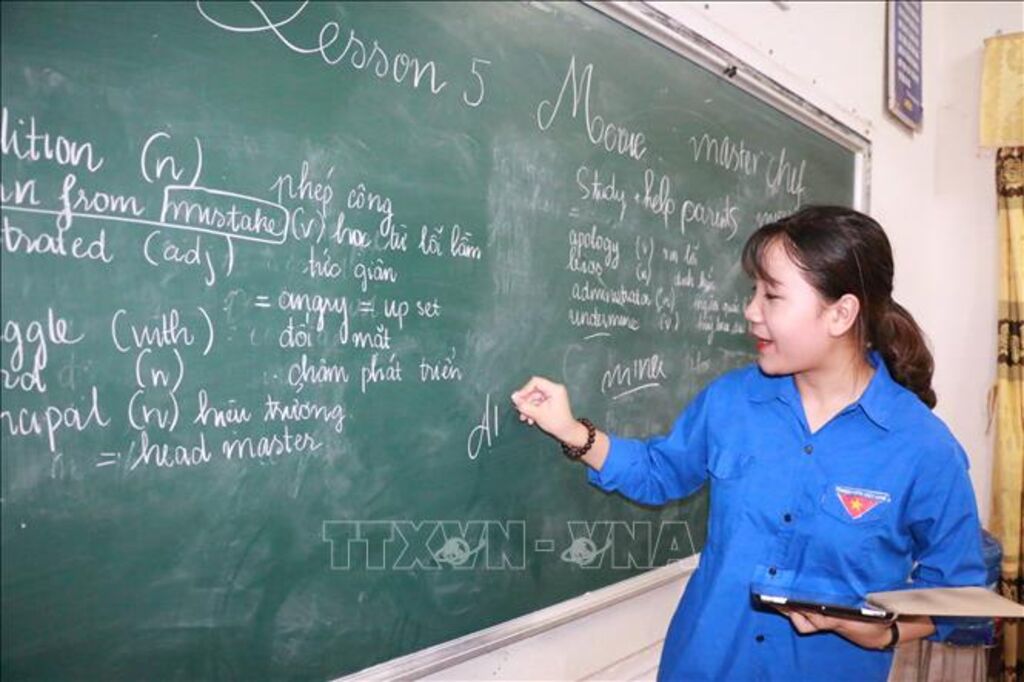 |
| At an English class in Nghi Loc commune, Nghe An province__Photo: Bich Hue/VNA |
Deputy Prime Minister Le Thanh Long has given a nod to a scheme to make English the second language in schools in the country for the 2025-2035 period, with a vision toward 2045.
Under the scheme approved under Decision 2371/QD-TTg, English will be widely and effectively used in teaching, communication, management, and other school activities, creating an English-speaking ecosystem at all education levels. Ultimately, it aims to develop a generation of global citizens who can meet the requirements of Vietnam’s international integration.
In early childhood education, children will be introduced to English to develop basic communication skills and prepare for learning English at general education institutions.
At general education, English teaching will help pupils develop their competencies and skills in using English in for cognitive and character development, and improve their capabilities to learn subjects as well as in educational activities, interaction and experience both inside and outside schools, thus contributing to the comprehensive development of Vietnamese people in the context of international integration. At higher education, the scheme is expected to develop an effective English-speaking environment in curricular modules, courses and credits of universities and for training and fostering teachers and lecturers. The scheme envisions universities as key drivers of English-based knowledge transfer, innovation, and international collaboration.
Vocational schools will focus on improving student’s English skills for workplace communication and career orientation, meeting the growing needs of domestic and international labor markets. Meanwhile, continuing education programs will offer diverse English learning contents to improve the overall quality of domestic human resources.
To achieve these objectives, the scheme points out the necessity to raise public awareness about English’s importance in education and global integration. The scheme also calls for the development of the quality staff of administrators and English teachers and lecturers, modernized curricula and learning materials, and updated teaching, testing and assessment methods.
The application of advanced technologies, particularly artificial intelligence (AI), will be expanded to personalize learning and improve outcomes, with special support for remote and disadvantaged areas. The scheme introduces specific policies to reward students with outstanding English proficiency and attract skilled graduates to teach in disadvantaged areas.
Under the scheme, surveys and assessments of English proficiency will be conducted for teachers and lecturers who teach English and teach other subjects in English at all education and training levels. Based on this, the standardized competency frameworks for each educational level will be established. Teachers’ training universities will work closely with schools to ensure continuous professional development and consistent teaching quality.
Digital transformation and the integration of AI are central to the scheme’s implementation. New online platforms will assess learners’ levels and provide tailored learning experiences. Schools across the country will be equipped with modern facilities and information technology infrastructure to guarantee equitable access to high-quality English education, particularly in ethnic minority and mountainous areas.- (VLLF)









